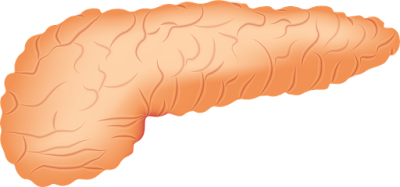Dietary fiber and cholesterol
Dietary fiber and its health benefits
Dietary fiber is an extremely important part of the diet.
Caution! A diet that is low in fiber can cause serious health problems.
What we are exposed when our diet is low in fiber?
On the part of the circulatory system: heart disease, hypertension, stroke, cerebral haemorrhages, varicose veins, high levels of cholesterol.
On the part of the digestive system: constipation, hemorrhoids, cancer of the colon, colitis, irritable bowel syndrome, Crohn's disease, colon polyps.
In addition, problems may occur with diseases associated with metabolism: obesity, diabetes, kidney stones, gallstones, gout.
Other diseases include caries, multiple sclerosis, skin problems, immune disorders, pernicious anemia.
Dietary fiber is not loosen digested in our digestive tract of some of the products of plant origin, and therefore plays an important role in the proper functioning of the body.
It occurs naturally in two different forms. The split fiber is soluble in water and the above water-insoluble fiber.
Water-soluble dietary fiber (pectin)
This type of fiber dissolves readily in water, forming a type of jelly gel bulky. It comes mostly from fruit (but not only).
Caution! The most effective is the apple pectin, pectin and grapefruit pectin, oat.
Insoluble fiber (cellulose)
It is a water absorbing fiber and intumescent. Also mechanically stimulates the intestinal wall and, therefore, they are excited to perform delicate peristaltic movements.
A rich source of this type of fiber is mainly leafy vegetables, legumes, and flax seed husk and bran.
What are the benefits of eating fiber in the correct proportions?
Water-soluble dietary fiber (pectin)
In this case, an gelatinous type gel that lines the walls of the gastrointestinal tract, and this prevents the walls irritation digested food.
What DIGEST also does not stick to the walls, and this prevents indigestion, and rot.
The resulting hard-permeable membrane slows the absorption of sugar from food. We are a long life and reduced insulin secretion.
This also controls the type of fiber hydration and fecal matter so it does not dry too. This avoids the problem of retention of stool, and this could lead to inflammation and constipation.
Insoluble fiber (cellulose)
The fiber absorbs huge amounts of water. Swells, expands, and this greatly increases the stool volume:)
Irritant It also gently stimulates the intestinal walls and into the appropriate move food down the digestive tract.
Caution! Your body will function properly if you keep the right proportions of the two soluble. If you want to get rid of constipation and restore normal bowel function, the ideal proportion is 60% fiber, pectin and 40% cellulose fiber.
Effect of dietary fiber on the digestive system
Fiber particular:
- mechanically irritate the intestinal wall, thereby indicating the necessity to move the fecal matter down the digestive tract, surrounded by gel jelly stool, and this gives it a slip and prevents rotting undigested food. Help us better understand the physiological digestion and defecation in less time. This allows properly assimilate nutrients, and the corresponding mass of stool causes the spacing between the bowel movement is correct.
Appropriate the amount in your diet ensures proper development of bacterial flora, with a diet low in fiber, followed by excessive growth of harmful bacteria, which in the future will lead to the malfunctioning of the intestines and the body.
Fiber on cholesterol
If your diet is rich in dietary fiber (especially the oatmeal), we can then easily control the level of cholesterol in the blood by the so-called trapping properties. bad cholesterol (LDL) and triglycerides.
Caution! The studies have shown that people with high cholesterol levels which were administered regularly min. 3 grams of fiber in oatmeal - decreased total cholesterol by 8-23%. At a dose of 10 g-15 g of total dietary cholesterol reduction after 3 months was 14%. Bad cholesterol (LDL) by 28%, and the level of good cholesterol (HDL) increased by 21%.


Comments
Post a Comment